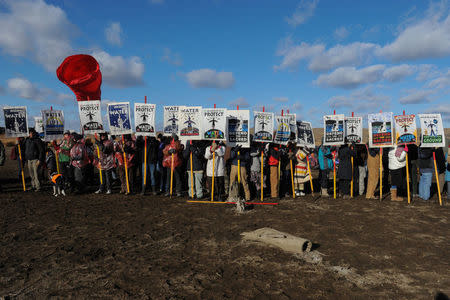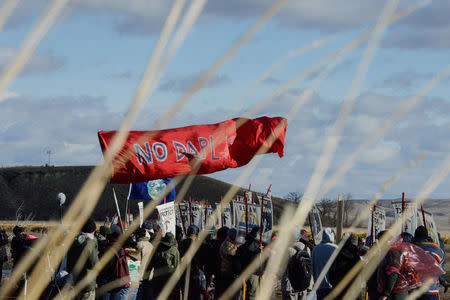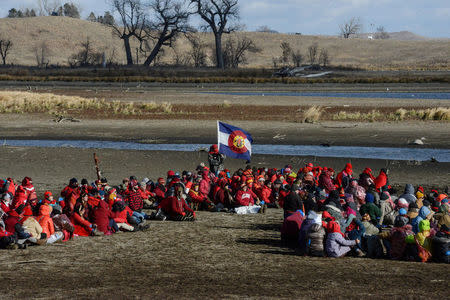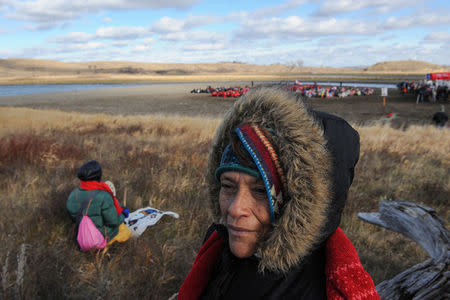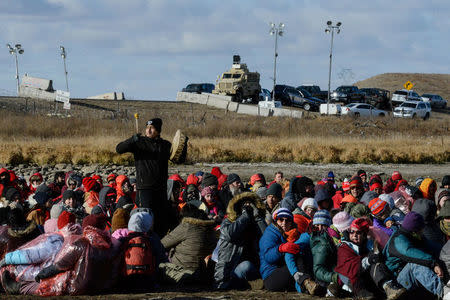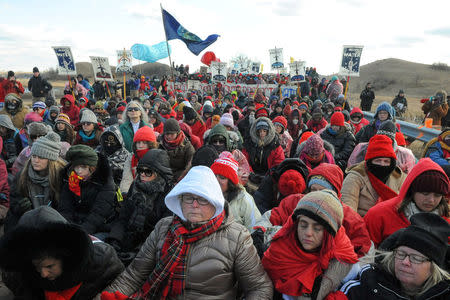Developer says Dakota Access pipeline will not be rerouted: AP
WASHINGTON (Reuters) - Energy Transfer Partners LP Chief Executive Officer Kelcy Warren said the company will not consider rerouting its Dakota Access oil pipeline despite concerns voiced by U.S. native groups, according to an Associated Press interview published on Friday.
President Barack Obama said earlier this month that the government was examining ways to reroute the pipeline.
Energy Transfer did not immediately respond to calls and emails seeking comment. Warren did tell the AP that he would like to meet with tribal leaders to ease their concerns about the project.
The Dakota Access Pipeline has been delayed since September, when federal regulators including the Army Corps of Engineers decided to re-review permitting under Lake Oahe, a federally owned parcel of land where the pipeline needs to cross.
The stoppage came after protests from the Standing Rock Sioux tribe, whose reservation is adjacent to the federal land where the pipeline runs. The U.S. Army Corps of Engineers elected to review their permitting again, and this past week deferred a decision, citing concerns about the tribe having been moved off its lands in the past.
On Friday, North Dakota Governor Jack Dalrymple asked the Army to resolve the permitting issues, citing protests that have sometimes turned violent at Cannon Ball, where the Standing Rock Sioux have erected a large camp that they plan to man throughout the winter. He also asked for assistance in law enforcement from federal authorities.
“Further delays simply prolong the risks to public safety, prolong the hardships endured by area residents and increase costs incurred by the state of North Dakota and Morton County," he said in a statement.
The 1,172-mile (1,885-km) pipeline is expected to take oil from North Dakota's Bakken shale region to Patoka, Illinois, en route to the Gulf of Mexico.
Production in North Dakota has been declining, however, in part because of low oil prices and the crude there is more expensive to extract than other regions, and also because of the limited transport opportunities by pipeline.
Production in North Dakota fell to 972,000 barrels daily in September, lowest since February 2014, according to latest state data.
ETP crews have been moving equipment in recent weeks to the edges of Lake Oahe; the company has said it will begin tunneling under the lake once it is finished. It does not yet have the permit to do so, however.
(Story corrects spelling of Patoka, Illinois, in paragraph 8.)
(Reporting by Susan Heavey; Editing by Marguerita Choy and Lisa Shumaker)
